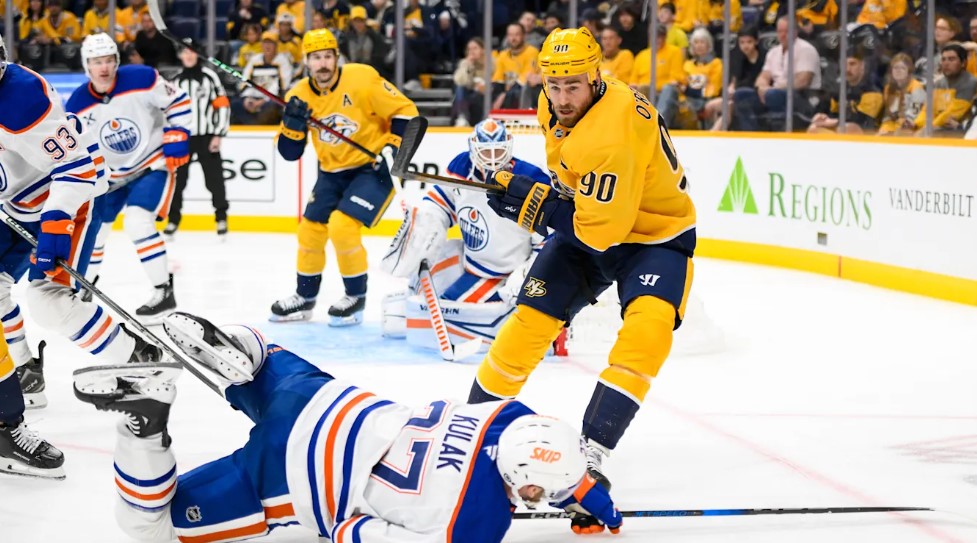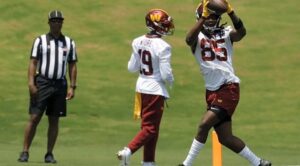
The Nashville Predators’ recent 5-1 defeat to the Edmonton Oilers has spotlighted troubling issues, suggesting a significant step backward in their season. This game, which ranks as their most lackluster performance so far, lacked any notable strong moments and saw the Oilers controlling the pace from the first drop of the puck to the final whistle. Filip Forsberg’s early goal, tying the game 1-1, provided a brief glimmer of hope but was ultimately a fortunate stroke rather than the result of structured offensive pressure. Forsberg capitalized on being in the right place at the right time, but beyond that, the Predators’ performance was riddled with problems.
The defeat highlighted the Predators’ struggles on both ends of the ice. Defensively, they experienced repeated breakdowns, poor passing, and a lack of cohesion, allowing Leon Draisaitl to extend his dominance over them with two goals and an assist, despite the Oilers missing star forward Connor McDavid due to a lower-body injury. The Predators’ defense, combined with goaltender Juuse Saros’ subpar night, failed to stand firm, conceding five goals despite Edmonton generating just nine high-danger chances during 5-on-5 play. Meanwhile, the Predators’ offensive showing was uninspired, managing only 27 shots on goal, most of which posed no significant challenge to Edmonton’s goaltender Calvin Pickard.
The early signs of struggle were evident as Viktor Arvidsson opened the scoring for the Oilers just 37 seconds into the match, setting the tone for a game where the Predators were perpetually on the back foot. Arvidsson’s line, paired with Draisaitl and Vasily Podkolzin, exerted continuous pressure throughout the first period, overpowering the Predators. While Saros initially showed resolve, he was unable to sustain his performance as the game unfolded, unable to rescue his teammates from defensive lapses.
This dismal performance marks the Predators’ worst outing in their first 10 games, with no evident effort at a comeback. Head Coach Andrew Brunette acknowledged the poor showing, admitting to local media that the team wasn’t prepared. “We weren’t ready to play… [It’s like] pounding a square peg in a round hole here,” Brunette remarked, recognizing the team’s repeated issue of needing to chase games from behind—an approach that rarely yields consistent success, particularly against top-tier opponents like the Oilers.
The Predators have shown brief moments of overcoming slow starts, as seen in wins over teams like Chicago and Columbus, but this strategy is unreliable, especially when facing higher-caliber teams. Although it’s still early in the season with 72 games remaining, the Predators are already putting themselves at risk by needing to compensate for missed opportunities and subpar performances. The team’s reliance on newcomers, such as Steven Stamkos and Jonathan Marchessault, to shake off initial rust and begin contributing more effectively in the goal-scoring department is vital; the duo, who combined for 82 goals last season, have only managed three goals between them so far.
Last season, the Predators’ playoff hopes were salvaged by an extraordinary 18-game point streak, a feat they cannot count on repeating. If the team finds itself scrambling for points again, the scrutiny on Brunette’s leadership could become more pronounced. While it’s too early to seriously question his job security, a failure to make the postseason after their ambitious free-agency moves would raise significant concerns. The Predators still have time to turn their fortunes around, but continued inconsistency could leave them facing a steep climb as the season progresses.







